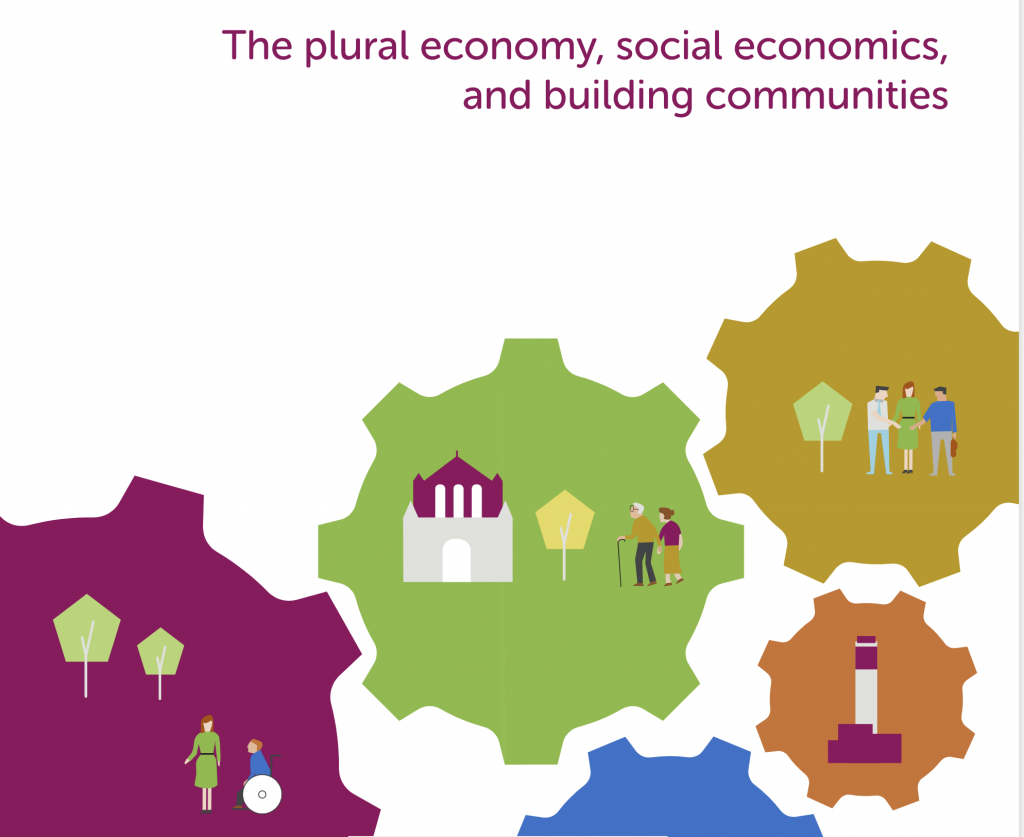
Social enterprise is the missing piece of the jigsaw when addressing deprivation and physical regeneration, according to our new report, The Plural Economy, Social Economics, and Building Communities.
The report, produced in conjunction with Queen’s Community and Place, and Trademark Belfast, argues that social enterprises can play a pivotal role in rebuilding local economies, if the sector receives the financial and skills support it needs to make it effective.
Social enterprises have an annual turnover of over £1bn in Northern Ireland (NI) and are a major employer (with over 25,000 employees), working productively in deprived areas with the most excluded people. However, there is massive potential, says DTNI, to scale this up, diversify the sector, and be even more successful in delivering training and jobs, and generating wealth, as part of an anti-poverty strategy.
Northern Ireland has changed significantly over the past 30 years, yet despite more people moving into the higher socio-economic groups, more people and places than ever are trapped in poverty and social exclusion. This is because of the demand for highly skilled or qualified employees in jobs that are located away from deprived neighbourhoods; the result is both a spatial and skills mismatch.
Building the social economy is a solution that has worked successfully and at scale in other places, such as the Basque area of northern Spain, and in Bologna in Italy. There are opportunities here, in the north of Ireland, to develop specific initiatives, like Social Enterprise Zones, and to develop an area-based approach by working in partnership with public bodies and local government.
We believe that this integrated approach can reach the most excluded and marginal communities, as it has done successfully around the world.